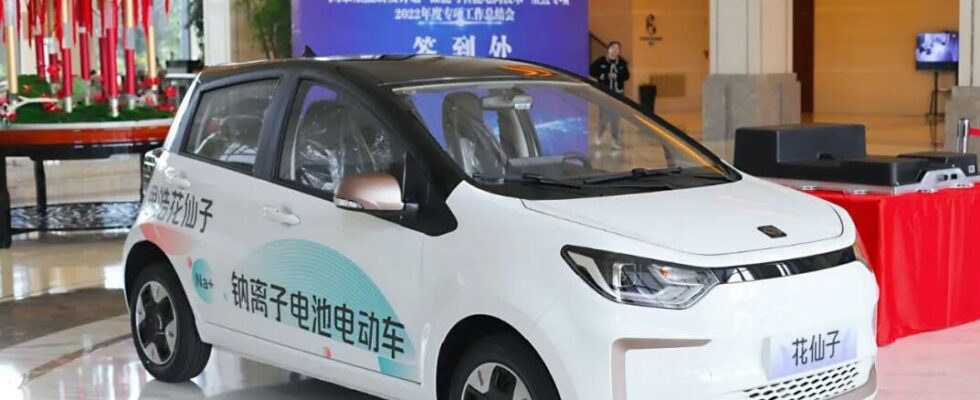Exit lithium, the electric cars of the future will be powered by sodium batteries, and a first prototype has just seen the light of day.
This first car with a sodium battery is to the credit of Anhui Jianghuai Automobile Group Corp (or JAC Motors for short).
Goodbye lithium, hello sodium
For (very) long years now, a certain alkali metal has been favored for the manufacture of rechargeable or high-voltage electric cells and accumulator batteries: lithium. Essential for the manufacture of current electric and hybrid car batteries, lithium nevertheless presents a significant risk of shortage, not to mention the importance of its environmental impact.
Also, for several years now, with the explosion of the electricity market, we are looking for alternatives to this same lithium, and this could involve new batteries made from sodium. A more abundant, less expensive ore, but which could also benefit from various advantages, starting with less dangerousness, better energy retention or even a better lifespan. Recently, a Chinese manufacturer unveiled a first electric model, powered by a sodium battery.
Is that a good situation, sodium battery?
Indeed, a few days ago, the Hina Battery company indicated that it had signed a partnership with the manufacturer JAC Motors, leading (among other things) to a first vehicle equipped with a sodium-ion type battery. This first Sehol EX10 prototype features a 25 kWh battery (with a density of 120 Wh/kg), and allows the vehicle to enjoy a range of approximately 250 km.
The “standard” version (lithium battery) of the vehicle is offered in two versions, 19.7 kWh and 31.4 kWh, for a range of 200 and 300 km respectively.
Many companies specializing in the development of batteries (such as CATL) are currently finalizing their tests on these new sodium batteries, whose mass production should start this year. The first production vehicles to adopt this new type of battery should hit the road sometime in 2024.
This new technology would also make it possible to reduce costs by around 20%, with however a slightly lower energy density than lithium-ion batteries, implying a slightly lower autonomy. On the other hand, they will benefit from rapid recharging, and should make it possible to satisfy the majority of uses.
Source : CNEV Post

6